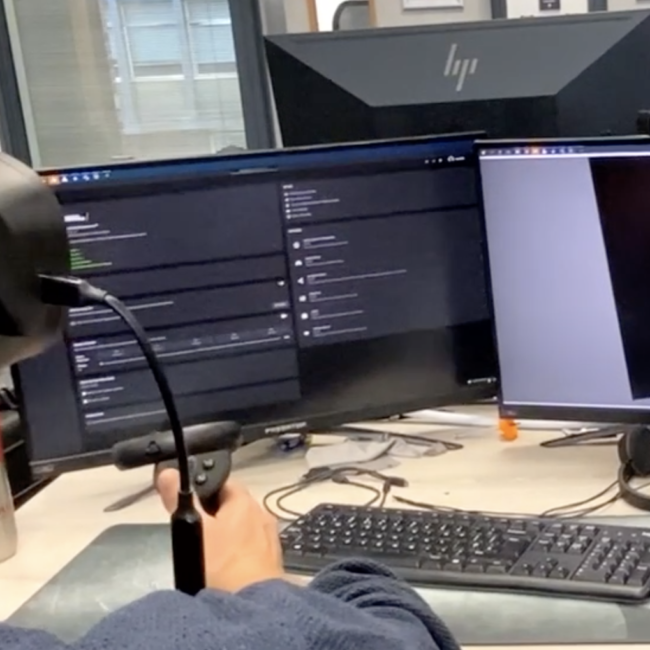There are hundreds of eye diseases which can lead to problems with vision and if not identified or treated early enough, can even lead to blindness. Orthoptists are the experts in identifying, diagnosing and treating defects in eye movement and problems with how the eyes work together, with roughly 1,100 practising orthoptists in the UK. Orthoptists also work with patients with a range of neurological conditions such as Stoke, and Parkinson’s disease, based on the brain’s relationship with our eyes.
The University of Liverpool’s Orthoptics department wanted to explore how emerging technology could help to improve their student’s learning, offering greater access to even more eye conditions as part of their clinical placements as part of their studies.
The Virtual Engineering Centre developed a realistic simulation for the students which includes Metahumans and multiple virtual orthoptic tools for them to use as part of the immersive experience. The students can now gain key observational and diagnostic clinical skills and outline treatment plans for even more eye conditions which can be easily flagged and identified, enabling earlier treatment.
Overall, the plan is to embed this valuable clinical resource within the curriculum to support students in clinical development, increasing their accessibility so every orthoptic student can use it at least once during their studies.
The Orthoptics team have recently shared a video the VEC developed for this project and has gone on to win a Learning and Teaching Fellowship, an internal University award that can support further funding research and teaching, available to a few selected individuals.
The support meant the Orthoptics students could:
- Gain exposure to a wider variety of eye conditions for improved learning
- Use virtual orthoptics tools within an immersive experience on Metahuman patients
- Develop key observational and diagnostic clinical skills
- Extend this virtual educational tool to even more students for wider access and greater learning
The Benefits
- Greater access to E-learning and immersive resources for realistic experiences
- Improve the diagnosis of patients for earlier treatment
Client opinion
"Initially I thought the simulation would be really hard to use and navigate, however it enabled us to see a realistic patient with a real condition and having the time to undertake and manage the tests which have really added value."
,
Orthoptics student
University of Liverpool

